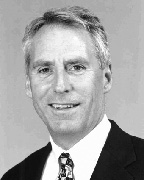Biomass is a renewable source of energy that is more sustainable than fossil fuels and more dependable than wind or solar. Its co-products provide an environmentally friendly and safe alternative to common petrochemicals and support fuel diversity and energy independence for N.E. On May 5th the Environmental Business Council (EBC) of N.E. will hold a seminar on Biomass to Energy in N.E. This EBC seminar will focus on the use of biomass as a source of renewable energy in Mass. and the other N.E. states. Issues to be addressed include the siting and permitting process, sources of biomass, renewable energy credits, and available technologies for converting biomass to energy.
Biomass can be used on the small scale, such as a modern, clean wood furnaces for industrial or commercial space heating, to very large scale, such as PSNH's 50 megawatt Northern Wood Power Plant in Portsmouth, N.H.
Regardless of plant size, biomass promises to be a key element of N.E.'s energy future and presents new energy options for the real estate community. The EBC expects an audience of energy developers, investors, venture capitalists, environmentalists, consultants, government regulators, and municipal power company representatives.
President Obama has made renewable energy a federal priority, including a national carbon dioxide cap and trade program. Mass. governor Deval Patrick includes clean renewable energy among his key priorities. According to the Mass. Technology Collaborative, clean energy is the 10th largest sector of the Mass. economy, with 14,400 jobs and (as of 2007) 20% annual growth in employment. Mass. has been in the vanguard of states in establishing renewable energy portfolio standards and a green house gas emissions cap and trade system that favors alternative energy sources. The seminar will update the status of legislative commissions called for under the Massachusetts Green Communities and other acts to evaluate renewable energy facility siting and fuels. It will inform on the applicability of these new and proposed programs to biomass projects and how these positives can be used to support a more robust and diversified renewable energy infrastructure.
Thomas Mackie, EBC board member and environmental/renewable energy attorney, and Dale Raczynski, a principal from Epsilon Associates specializing in air quality and permitting of energy facilities, will co-chair the seminar. The faculty will include key government regulators, highly experienced environmental professionals and representatives of environmental organizations who all have a stake in the renewable energy field.
Of particular interest will be discussion of what biomass fuels should be considered "carbon neutral" and potentially eligible for government incentives such as carbon offsets and renewable energy credits. Opinions differ on the eligibility of certain feedstocks, such as waste wood and forestry products even though these may be abundant and readily available fuels. Other potential barriers, such as the Mass. Department of Environmental Protection's current moratorium on development of new municipal waste combustors will be addressed.
The seminar will also explore biomass to energy technologies ranging from traditional combustion to gasification in molten metal baths or with plasma torch technology. Discussion will include use of biomass as a heating source and for the generation of electricity.
EBC invites you to participate in this exciting opportunity to develop a green energy economy. To register for the seminar go to www.ebcne.org.SAVE THE DATEEBC 3rd Annual Low Impact
Development Conference:
Stormwater Management - Regulatory Drivers
When: Thursday, April 16th, 2009
Time: 7:30 a.m. - Noon
Where: Sheraton Framingham
1657 Worcester Rd.
Framingham, Mass. 01701
Emerging state and federal regulations are driving stormwater management programs and low impact development. This year's conference will provide the latest information on where the regulations are going, and the developing science and economics behind those regulations.
This is a must attend event for developers, consultants, architects, engineers, regulators, and municipal, state, and federal officials.
Tags:









